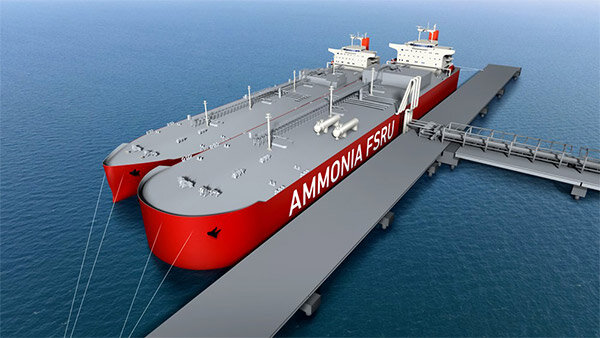Japan’s shipping giant MOL and compatriot Mitsubishi Shipbuilding, a unit of Mitsubishi Heavy Industries, have won an approval in principle by ClassNK for an ammonia floating storage and regasification unit (FSRU) design.
This AiP gives MOL further assurances in its design and development of an ammonia FSRU, the technology, which enables a large scale of storage and distribution of seaborn ammonia, MOL said in a statement.
Last year, the two firms completed a concept study on the FSRU.
Introducing the ammonia FSRU concept, MOL expects to “contribute to develop ammonia value chain as an alternative carbon neutral fuel,” it said.
FSRU is a floating facility designed for liquified gases and equipped with storage tanks and a regasification facility that receives liquefied gas at sea, vaporizes it and sends it ashore.
It has the advantages of lower cost and shorter construction period than those of the equivalent facilities onshore, MOL said.
MOL said it has gained “considerable experience” in the operation of FSRUs for liquefied natural gas (LNG).
In applying for this AiP, MOL, along with ClassNK and Mitsubishi Shipbuilding, conducted a hazard identification study (HAZID), and identified hazards and their risks to be considered in the design of the ammonia FSRU.
Prior to the HAZID, MOL conducted a gas dispersion study. The result of the gas dispersion study was used in the HAZID, that allowed the HAZID team to evaluate risks more quantitatively and narrow down specific preventive measures and countermeasures against ammonia leaks, MOL said.
MOL added it will use this knowledge to further pursue the business development of ammonia FSRUs.

